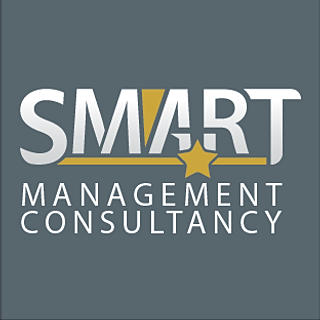Understanding Healthcare Accreditation in Bahrain
- Smart Management Consultancy
- Apr 15
- 3 min read
Updated: Apr 29

The National Health Regulatory Authority (NHRA) in Bahrain plays a crucial role in ensuring the quality and safety of healthcare services. One of its key functions is healthcare accreditation. This process is vital for maintaining high standards and fostering a culture of continuous improvement within the healthcare sector.
What is Healthcare Accreditation?
Healthcare accreditation is a formal process where an authorized body, like the NHRA, assesses and recognizes that a healthcare organization meets pre-determined standards. These standards are designed to ensure that healthcare facilities provide safe, effective, and high-quality care to patients. Accreditation was originally a voluntary process, then it became a mandate for healthcare facility license renewal. Accreditation demonstrates a healthcare provider's commitment to excellence and patient safety.
Role of NHRA in Accreditation
The NHRA is responsible for setting and enforcing healthcare standards in Bahrain. Through its accreditation program, the NHRA evaluates healthcare facilities against these standards. This evaluation covers various aspects, including:
Management and Leadership: Assessing the governance and organizational structure of the facility.
Patient-Centered Care: Ensuring that patient needs and rights are respected and prioritized.
Quality and Safety: Evaluating the processes and systems in place to maintain quality and prevent errors.
Infrastructure and Resources: Checking that the facility has adequate resources and infrastructure to support safe and effective care.
Staffing and Competency: Verifying that healthcare professionals are qualified and competent to provide care.
Benefits of NHRA Accreditation
Accreditation by the NHRA offers several benefits to healthcare providers and patients:
Enhanced Quality of Care: Accreditation ensures that healthcare facilities adhere to high standards, leading to better patient outcomes.
Patient Safety: Accreditation focuses on safety protocols and procedures, reducing the risk of errors and adverse events.
Public Trust: Accreditation builds public trust and confidence in the healthcare system.
Continuous Improvement: The accreditation process encourages healthcare facilities to continuously improve their services and processes.
Regulatory Compliance: Accreditation helps healthcare providers comply with NHRA regulations and standards.
The Accreditation Process
The accreditation process typically involves several steps:
Application: Healthcare facilities apply to the NHRA for accreditation.
Self-Assessment: Facilities conduct a self-assessment to identify areas for improvement.
On-Site Survey: NHRA surveyors conduct an on-site visit to evaluate the facility.
Report and Findings: The surveyors prepare a report with findings and recommendations.
Accreditation Decision: The NHRA makes an accreditation decision based on the survey report.
Monitoring and Re-Accreditation: Accredited facilities are monitored, and re-accreditation is required periodically.
Staying Updated with NHRA Standards
Healthcare providers must stay informed about the latest NHRA standards and regulations. Regular updates and circulars are provided by the NHRA to ensure compliance and maintain high standards.
Conclusion
Healthcare accreditation by the NHRA is a critical component of ensuring quality healthcare in Bahrain. It promotes patient safety, encourages continuous improvement, and builds public trust. Healthcare facilities that undergo and achieve accreditation demonstrate their commitment to providing the best possible care to their patients.
Role of Smart Management Consultancy
We in SMART can help healthcare facilities to:
Train the staff on principles of accreditation
Build a culture of quality, patient safety, and risk identification and management
Understand the requirements of the accreditation standards
Work together to develop the needful documents, including policies, plans, forms, templates, and much evidence of compliance to meet the standards
Prepare the staff for the final accreditation survey visit
Work together to resolve all non-compliance after the final survey visit
Highlight the importance of continuous communication















Comments